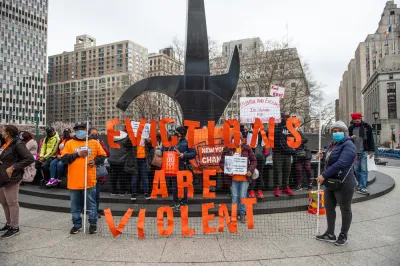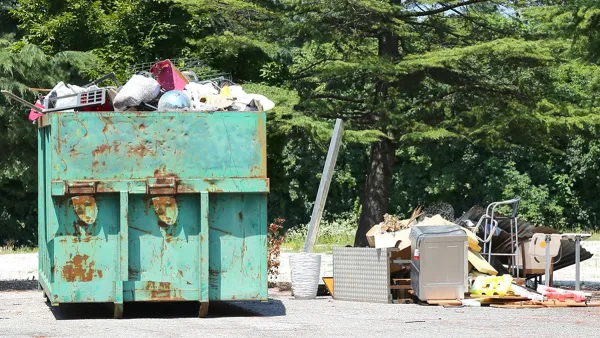HUD's new fair housing rule crucially overlooks the role of evictions in perpetuating residential segregation.

According to Devin Rutan and Renee Louis, "[t]he Biden Administration’s recent efforts to combat housing discrimination will fall short if they do not address eviction," commenting on the lack of eviction protections in HUD's reintroduced Affirmatively Furthering Fair Housing (AFFH) rule. "If the Biden Administration is serious about rooting out discrimination in rental housing and reducing segregation, it must incorporate eviction into its new fair housing rule."
The rule, which was introduced in 2015 and removed in 2018, "will require local governments to demonstrate that they are taking 'meaningful action' to promote fair housing markets, free from discrimination." But omitting eviction from the conversation leaves out a crucial element.
Nationwide, our research shows that Black Americans are significantly more likely to be evicted than their white peers. Nearly a quarter of Black tenants live in a county where the eviction rate for Black tenants is double the rate for white tenants. In Virginia, 60% of majority-Black neighborhoods have eviction rates greater than 10% — quadruple the national average. These racial disparities in eviction are even more extreme for Black women. And they're exactly the kinds of impacts the Fair Housing Act is meant to address.
Other factors that increase discrimination include family status, as "a family with children, all else being equal, is three times more likely to be evicted as another tenant who is also behind on the same amount of rent."
Despite the rule's intentions to promote fair housing, the authors conclude, "tenants with an eviction record, disproportionately Black women, are permanently locked out of most housing options. With millions of households facing eviction each year, any attempt by HUD at reducing segregation without explicitly addressing evictions will fall short."
FULL STORY: To Root Out Segregation, Biden Must Tackle Evictions

Analysis: Cybertruck Fatality Rate Far Exceeds That of Ford Pinto
The Tesla Cybertruck was recalled seven times last year.

National Parks Layoffs Will Cause Communities to Lose Billions
Thousands of essential park workers were laid off this week, just before the busy spring break season.

Retro-silient?: America’s First “Eco-burb,” The Woodlands Turns 50
A master-planned community north of Houston offers lessons on green infrastructure and resilient design, but falls short of its founder’s lofty affordability and walkability goals.

Test News Post 1
This is a summary

Analysis: Cybertruck Fatality Rate Far Exceeds That of Ford Pinto
The Tesla Cybertruck was recalled seven times last year.

Test News Headline 46
Test for the image on the front page.
Urban Design for Planners 1: Software Tools
This six-course series explores essential urban design concepts using open source software and equips planners with the tools they need to participate fully in the urban design process.
Planning for Universal Design
Learn the tools for implementing Universal Design in planning regulations.
EMC Planning Group, Inc.
Planetizen
Planetizen
Mpact (formerly Rail~Volution)
Great Falls Development Authority, Inc.
HUDs Office of Policy Development and Research
NYU Wagner Graduate School of Public Service




























